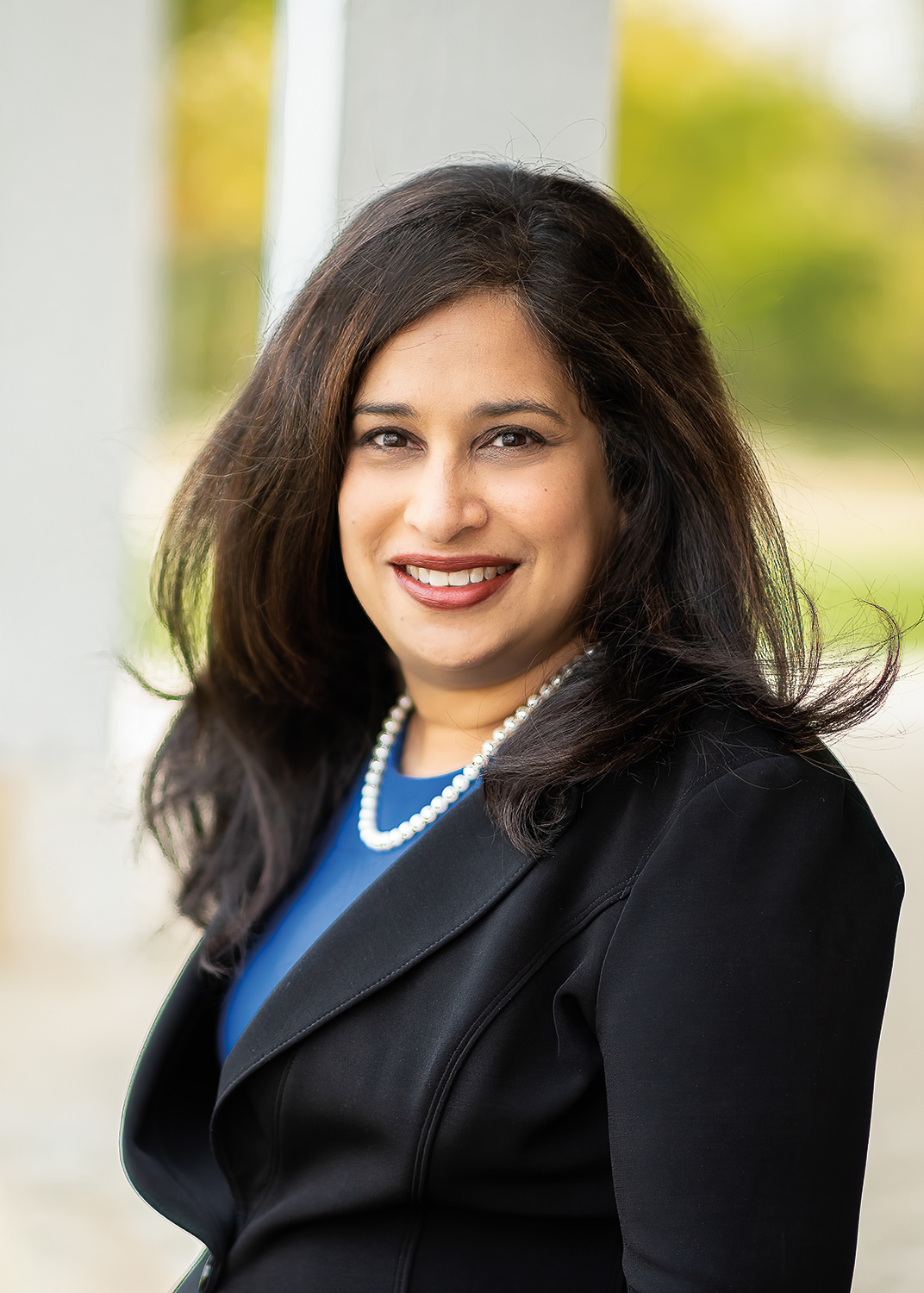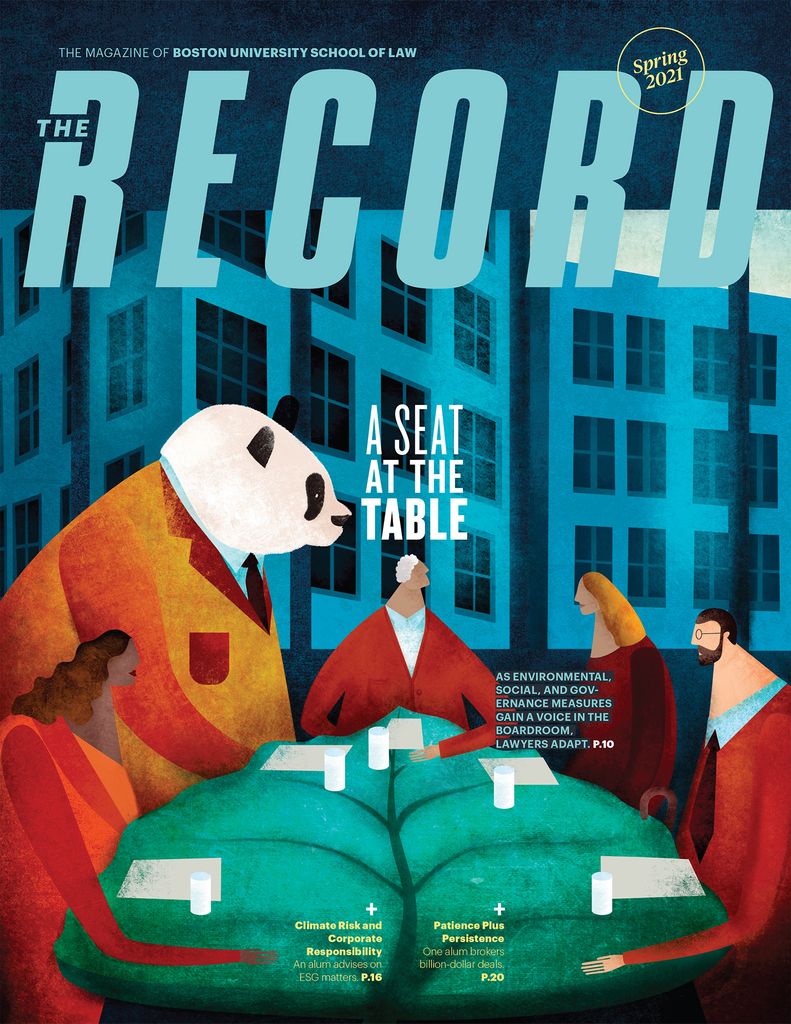Toward Equal Justice
Shubi Deoras on expanding access to civil justice for low-income and disadvantaged people.

Photo courtesy of Shubhangi Deoras
Toward Equal Justice
Shubi Deoras on expanding access to civil justice for low-income and disadvantaged people.
Shubhangi “Shubi” Deoras (’96) has had a career-long passion for helping people protect and exercise their legal rights, from serving with a tenants’ rights organization in Chicago to joining the American Bar Association as an assistant counsel on indigent defense issues. Since 2017, she has served as counsel and director for the American Bar Association Resource Center for Access to Justice Initiatives, which works with legal leaders across the United States to expand access to civil justice for low-income and disadvantaged people.
“There are a lot of barriers built into our system, and I wanted to do what I could to fight against that,” she says.
The Record spoke with Deoras to learn more about the critical role of the resource center in advancing access to justice and its goals for 2021.
Q&A
The Record: Why is this work critical?
Shubi Deoras: On a daily basis, countless Americans are at risk of losing critical rights and having basic human needs go unmet because they cannot afford an attorney and are unable to effectively navigate civil law and procedure on their own. The words “Equal Justice Under Law” are inscribed above the entrance of the United States Supreme Court building, but that promise is empty unless we work toward ensuring that the most vulnerable among us can access our justice system.
The Record: What is the role of the resource center?
Shubi Deoras: The resource center is a special project of the ABA Standing Committee on Legal Aid and Indigent Defense, the oldest ABA standing committee. Our mission is to work with leaders within the bench, bar, and other stakeholder groups to expand access to civil justice for low-income and disadvantaged persons.
Our work involves two main areas of focus. The first is expanding resources to provide legal assistance for those who cannot afford it, and the second is promoting the development of and supporting existing state-based Access to Justice (ATJ) Commissions.
A recent study by the Legal Services Corporation showed that low-income Americans receive inadequate or no professional help for 86 percent of their civil legal problems. That’s a huge, unacceptable number. Given the complexity in so many areas of civil law, we know that lawyers are crucial to positive outcomes. Identifying effective and innovative ways to fund programs that provide free legal services remains one of the highest priorities for the resource center.
On a daily basis, countless Americans are at risk of losing critical rights and having basic human needs go unmet because they cannot afford an attorney and are unable to effectively navigate civil law and procedure on their own.
The Record: How is the resource center responding to the challenges presented by the COVID-19 pandemic?
Shubi Deoras: The devastating impact of COVID-19 on access to justice cannot be overstated. Commissions working to improve this issue were overwhelmed prepandemic. We instituted weekly Zoom meetings with ATJ Commission directors to facilitate communication about new challenges. We also gathered resources addressing the effects of COVID-19 on access to justice.
Civil legal needs have skyrocketed due to mounting health issues, lost jobs and housing, food insecurity, increased domestic violence, and other ripple effects of the pandemic. This has led to an immense increase in the number of low-income individuals requiring legal assistance, in turn leading to huge case backlogs in courts, especially as federal, state, and local moratoria on evictions expire.
One positive outcome is that the added pressure has pushed diverse stakeholders to work together toward creating a more equitable justice system. And courts out of necessity have become more flexible by providing online alternatives to in-person proceedings. This highlighted the critical need for courts in general to upgrade their technology. At the same time, there are serious access-to-justice concerns raised by the widespread use of virtual and remote court hearings, given the large divide that exists between those who have ready access to today’s technology (as well as a private workspace or other appropriate area) and those who do not. Balancing these concerns against the public’s health and safety remains an ongoing challenge for the courts and other justice system stakeholders.
The Record: What are the resource center’s plans for 2021?
Shubi Deoras: A big focus of ours is continuing to support ATJ Commissions as they try to address both unprecedented challenges resulting from the pandemic as well as long-standing racial bias that persists within the civil justice system.
In 2020, we created a new working group on racial justice for those commissions, and many leaders have expressed interest in joining. We’ll be convening this group regularly to provide a safe space to continue conversations on the ways in which commissions can confront institutional racism, including using a race equity lens when developing statewide action plans for making system improvements and implementing mandatory training programs on implicit bias for judicial branch staff and others. It’s really important to try to keep the momentum going, because this is such a critical issue for our civil justice system.

